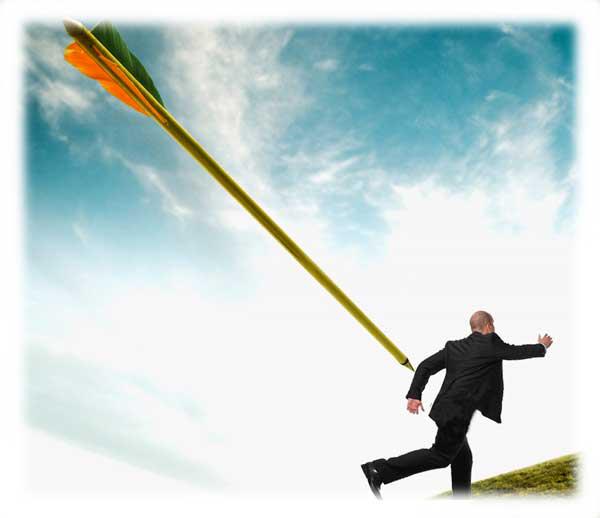“When hit with discomfort, the conventional reaction is to whine and regret, kick oneself, take it hard. So we feel two afflictions: 1) the inevitable, physical feelings [a first arrow the world blasts us with] and 2) the additional, mental reactions [the second arrow we shoot into ourself]. We may fail to note any relief or escape from uncomfortable feelings [the first arrow] other than to distract ourselves with sensual pleasure. So we cling to diversions, rather than observing what is actually present, the arising and passing of feelings.”
—The Buddha, The Arrow Sutta
This teaching is often summarized as “Pain is inevitable, but suffering is optional.” We have in life two forms of distress in life. The first arises from the unavoidable events that occur in life: the pains, insults, rejections, losses, separations, aging, sickness and on. Such events quickly give rise to inevitable, uncomfortable physical expressions, such as feelings that the wind knocked out of us, a hollowness in the chest, a tight stomach, dizziness, tears, etc. The second form of distress lies in our thought based reactions to the event: “Why me? This is unfair. How do I change this? What will happen now?” We add more anguish to the mix by taking universal experiences personally, trying to escape the unavoidable.
These optional, second arrows of torment can -play out in different ways:
1) We can blame and denounce others for shooting us with those first arrows [their rejections, insults, dismissals, wrongs of all varieties] and feel picked on by the universe.
2) We can castigate and condemn ourselves for being human and not avoiding life’s inescapable disappointments, reaching the conclusion we are particularly damaged or fated to misery.
3) We can chase short term distractions and pleasures: stuffing our feelings with food, retail therapy, deluging ourselves in work, seeking refuge in television or sex, drugs and alcohol…
All of these approaches distract us, until they eventually let us down. No matter how much we blame ourselves or others, or keep ourselves busy, the discomforts we’ve been avoiding and abandoning resurface; from high-flying financiers to destitute heroin addicts, whatever diversionary tactics we choose will wear thin and return us to emotional conditions of vulnerability, loss, emptiness. No matter how much we’ve been sweeping under the rug, we will have to face the challenging feelings from which we’ve been hiding.
The spiritual solution is to put aside the distractions and to attend to the uncomfortable feelings directly after being hit with those first arrows. How does it feel to be fired? dumped? rejected? abandoned? Not good, but if we hold the sensations in our awareness, it turns out they’re not as overwhelming as we thought; with compassion and care the body softens, the mind becomes less agitated, the impressions arise and pass. It turns out we can survive being hit by an arrow, so long as we don’t shoot to many into ourselves in return.

Comments
Post a Comment